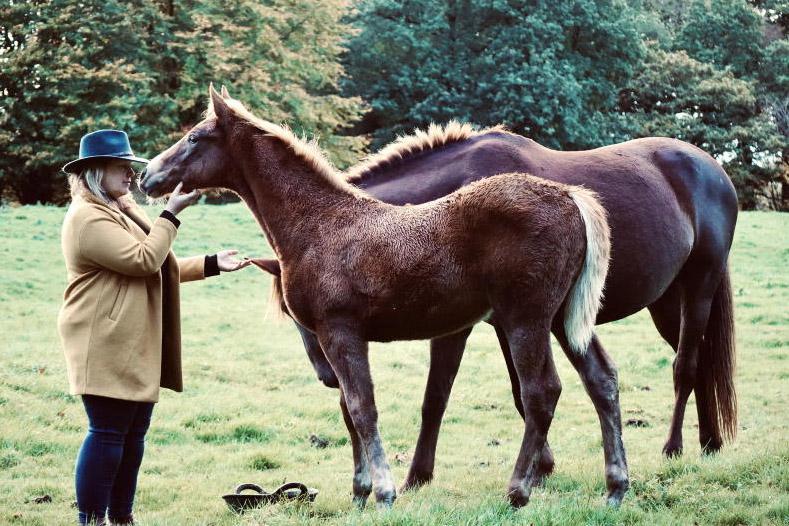Dear Enda
I have two sons who are 16 and 11 and a daughter who is 14. The problem is that none of them get on.
They are constantly bickering and fighting with each other. I keep having to act as a referee which has me worn out.
Can you give me some suggestions as to what I can do?
Aileen
Dear Aileen
Having to act as referee when the kids are fighting has got to be the bane of most parent’s lives. Unfortunately, whilst it might quieten down the noise level in the short term, this refereeing neither solves the problem, nor teaches them how to resolve this themselves.
The only place in life where they will find referees are on a football pitch and in courtrooms. So, if they want to survive in the outside world they are going to have to learn how to endure and live with people they don’t like.
However, as adolescents, they are not going to be able to this on their own, especially if it has become toxic. So, it is our responsibility to teach them.
While we all love our kids equally, we will have a very different relationship with each of them. Kids can’t understand this and I’m sure you’ve had your share of being blamed for treating one of them differently or accused of loving one over the other.
Over time, these beliefs can become very fixed in their head and as a result they will filter everything through what they believe, not only just seeing evidence that supports their belief but dismissing evidence that doesn’t.
Intervening must start from the perspective that while they don’t have to like each other, they do need to learn how to respect each other. Similarly, as with every relationship, if each wants to get what they need from the others, they need to learn how to give the others what they need from them.
Bring each of them separately for a drive in the car. Get them talking about what they see is their problem with each of the others. Listen with interest. Paraphrase what they are saying, focusing solely on the kernel of truth in what they say. Whatever you do, don’t challenge.
Ask them what they were hoping to achieve the last time they had an argument with one of the others versus what they actually achieved. Brain storm what they could have done instead to get what it was they wanted (usually this is just to be respected).
Teach them how to avoid being dragged into the ring when one of the other’s wants to spar.
Next, validate when you see them practice what you have both discussed. Keep bringing them back to the importance of changing their own response if they want the others to change theirs.
Once you have them all practicing changing how they argue, you are ready to do this with them all as a group. Meet on a Saturday or Sunday morning. Not at night as everyone is tired
Insist that each person is allowed to talk without interruption and allows the others the same right. As each person speaks, ask the others to paraphrase back. Clarify, that this does not mean agreeing, just validating.
Ask each what they would like the others to do in specific situations. At each meeting, highlight solely where each has done this.
It is very difficult not to warm to those who respect us. They may not become best buddies but at least they will learn how to respect and work with each other for all their benefit.
Enda Murphy is a cognitive behavioural therapist who focuses on supporting adults to support young people. For more details go to www.seeme.ie
Read more
Agony Uncle: how do I talk to my teenage son about porn?
Agony Uncle: how can I stay connected and communicate with my son?
Dear Enda
I have two sons who are 16 and 11 and a daughter who is 14. The problem is that none of them get on.
They are constantly bickering and fighting with each other. I keep having to act as a referee which has me worn out.
Can you give me some suggestions as to what I can do?
Aileen
Dear Aileen
Having to act as referee when the kids are fighting has got to be the bane of most parent’s lives. Unfortunately, whilst it might quieten down the noise level in the short term, this refereeing neither solves the problem, nor teaches them how to resolve this themselves.
The only place in life where they will find referees are on a football pitch and in courtrooms. So, if they want to survive in the outside world they are going to have to learn how to endure and live with people they don’t like.
However, as adolescents, they are not going to be able to this on their own, especially if it has become toxic. So, it is our responsibility to teach them.
While we all love our kids equally, we will have a very different relationship with each of them. Kids can’t understand this and I’m sure you’ve had your share of being blamed for treating one of them differently or accused of loving one over the other.
Over time, these beliefs can become very fixed in their head and as a result they will filter everything through what they believe, not only just seeing evidence that supports their belief but dismissing evidence that doesn’t.
Intervening must start from the perspective that while they don’t have to like each other, they do need to learn how to respect each other. Similarly, as with every relationship, if each wants to get what they need from the others, they need to learn how to give the others what they need from them.
Bring each of them separately for a drive in the car. Get them talking about what they see is their problem with each of the others. Listen with interest. Paraphrase what they are saying, focusing solely on the kernel of truth in what they say. Whatever you do, don’t challenge.
Ask them what they were hoping to achieve the last time they had an argument with one of the others versus what they actually achieved. Brain storm what they could have done instead to get what it was they wanted (usually this is just to be respected).
Teach them how to avoid being dragged into the ring when one of the other’s wants to spar.
Next, validate when you see them practice what you have both discussed. Keep bringing them back to the importance of changing their own response if they want the others to change theirs.
Once you have them all practicing changing how they argue, you are ready to do this with them all as a group. Meet on a Saturday or Sunday morning. Not at night as everyone is tired
Insist that each person is allowed to talk without interruption and allows the others the same right. As each person speaks, ask the others to paraphrase back. Clarify, that this does not mean agreeing, just validating.
Ask each what they would like the others to do in specific situations. At each meeting, highlight solely where each has done this.
It is very difficult not to warm to those who respect us. They may not become best buddies but at least they will learn how to respect and work with each other for all their benefit.
Enda Murphy is a cognitive behavioural therapist who focuses on supporting adults to support young people. For more details go to www.seeme.ie
Read more
Agony Uncle: how do I talk to my teenage son about porn?
Agony Uncle: how can I stay connected and communicate with my son?








SHARING OPTIONS